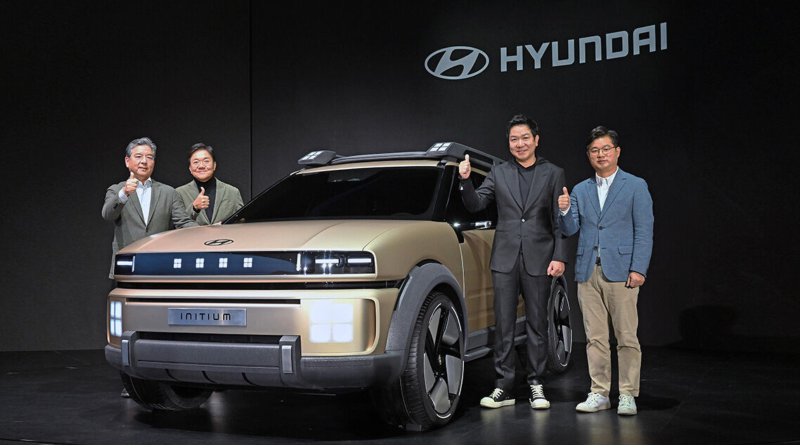Hyundai Unveils Hydrogen Vehicle ‘Initium’ as Bet on Clean Fuel Future
Hyundai Motor Co. has introduced a new hydrogen-powered vehicle, Initium, as part of its ambitious strategy to promote hydrogen as a clean alternative fuel
Hyundai Motor Co. has introduced a new hydrogen-powered vehicle, Initium, as part of its ambitious strategy to promote hydrogen as a clean alternative fuel. Unveiled on Thursday, Initium boasts an impressive driving range of over 650 kilometers (404 miles) on a single refuel, surpassing Hyundai’s previous hydrogen model, the Nexo, which offered 609 kilometers. Notably, Initium can also serve as a backup power source for homes, highlighting Hyundai’s innovative approach to making hydrogen-powered vehicles more versatile. The car is expected to hit the market in the first half of next year, aligning with Hyundai’s commitment to achieving net-zero emissions by 2045. Despite hydrogen’s benefits, such as quicker refueling times and longer ranges, its adoption in the auto industry has been limited. Challenges persist in producing, storing, and transporting hydrogen fuel, making it commercially unviable on a large scale. Nonetheless, Hyundai remains steadfast, pledging an investment of $4 billion over the next decade to advance hydrogen technology.
Unlike other automakers who have largely focused on battery electric vehicles (BEVs), Hyundai views hydrogen as a promising alternative, particularly for heavy-duty commercial vehicles. According to Jim Park, head of commercial vehicles and hydrogen development for Hyundai North America, hydrogen’s high storage density gives it an edge over batteries, especially in terms of weight and range for commercial applications. While BEVs are currently viewed as the most cost-effective way to reduce passenger car emissions, Hyundai sees potential in hydrogen for sectors requiring extended range and higher payloads. However, hydrogen vehicle sales remain modest; from January to September, hydrogen cars accounted for less than 0.5% of Hyundai’s domestic sales (around 2,400 units), significantly lower than its 30,942 battery-powered EV sales over the same period.




